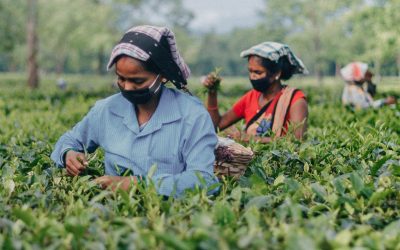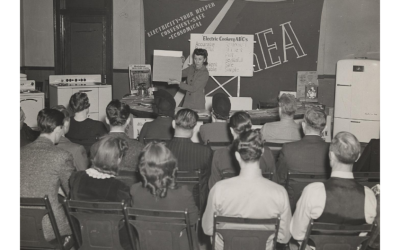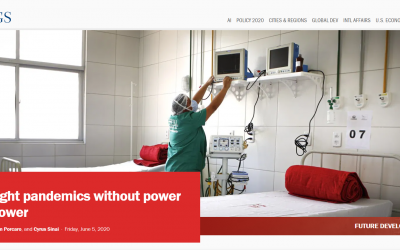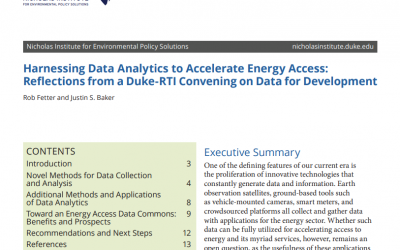T. Robert Fetter

T. Robert Fetter
Senior Fellow, Duke Sanford Center for International Development
T. Robert Fetter is Senior Fellow, Duke Sanford Center for International Development, and works with the Duke University Energy Access Project. He works with researchers from multiple units at Duke University focused on policy, business, economics, law, science, and engineering. He also works with global practitioners and policy makers, to advance opportunities to increase energy access and the use of low-carbon and sustainable energy sources.
Fetter joined the Nicholas Institute after completing his Ph.D. in environmental policy at Duke, where he wrote about global energy transitions as well as about regulation and firm learning in the emerging technology of hydraulic fracturing. Prior to his doctoral studies, he helped create a social enterprise company that created an independent, stakeholder-based certification standard for responsibly produced oil and gas, and he co-led the strategic engagement of NGOs, indigenous communities, and other stakeholders. He previously worked in environmental policy consulting for more than a decade, leading interdisciplinary analyses, writing more than 80 technical reports, and serving as an expert witness on renewable energy markets.
My Work
Global Assessment of Electricity in Healthcare Facilities
The Global Assessment of Electricity in Healthcare Facilities provides a comprehensive update on the status and key actions needed for providing reliable, modern energy to health-care facilities in low- and middle-income countries.
Catalyzing Climate Finance for Low-Carbon Ag-Tech
Despite minimal contributions to causing climate change, rural households working in the agriculture sector are disproportionately impacted by climate-related shocks and see it as one of the biggest risks to their livelihoods.Climate finance presents a critical...
New Blog! Solar technologies can speed up vaccine rollout in Africa. Here’s how.
The success of national vaccine distribution efforts depends on a functional cold chain. EAP’s Rob Fetter shared how solar can be a part of the solution in The Conversation.
Mapping Solar Arrays With Aerial Imagery
Policymakers need accurate data in order to make strategic investments decisions for grids, microgrids, and off-grid solar home systems, but those data are often missing.Two critical inputs for planning—who has access to electricity, and the...
PV Magazine: Machine learning: ‘New electricity’ enabling access
EAP research on using satellite and drone imagery to automatically detect solar PV panels featured in PV Magazine.
Come join the Electric Circus!
In 1935, only 10% of farms in the U.S. were electrified. This was seen as a huge problem – the productivity and quality of life that electricity could bring was bypassing the American farmer. In order to bring light to the countryside, the Rural Electrification...
Energy Voice: Power in the time of a pandemic
In developing countries, unreliable energy access presents additional challenges in responses to COVID-19. EAP’s Rob Fetter told Energy Voice that off-grid solutions could be implemented relatively quickly to help address the issue.
You can’t fight pandemics without power
The piece addresses the importance of reliable electricity access for monitoring and treatment of infectious diseases, including COVID-19, in sub-Saharan Africa.
Harnessing Data Analytics to Accelerate Energy Access: Reflections from a Duke-RTI Convening on Data for Development
This document presents a vision and summary of how development and scaling of new tools, and application of big data analysis principles, have the potential to transform energy systems planning, policy design and implementation, and investment decisions.










